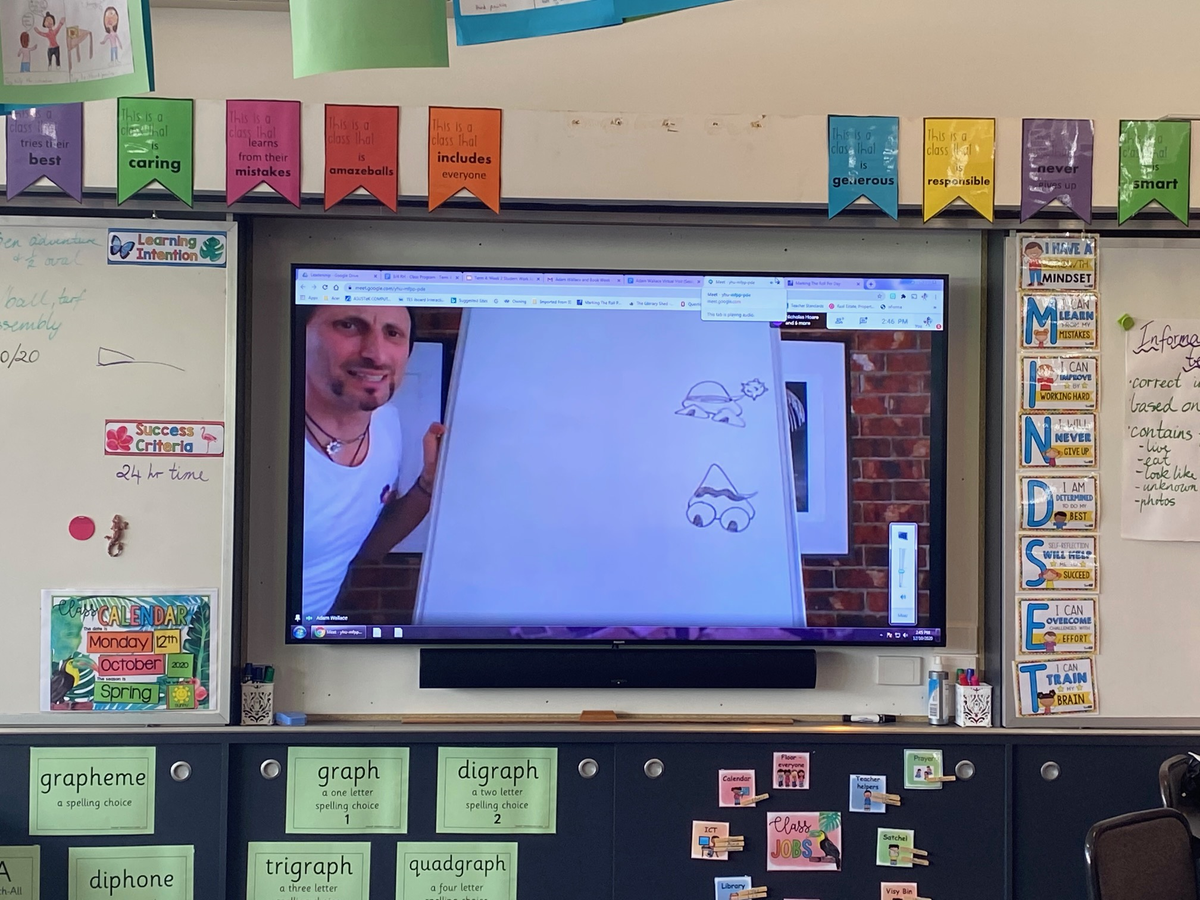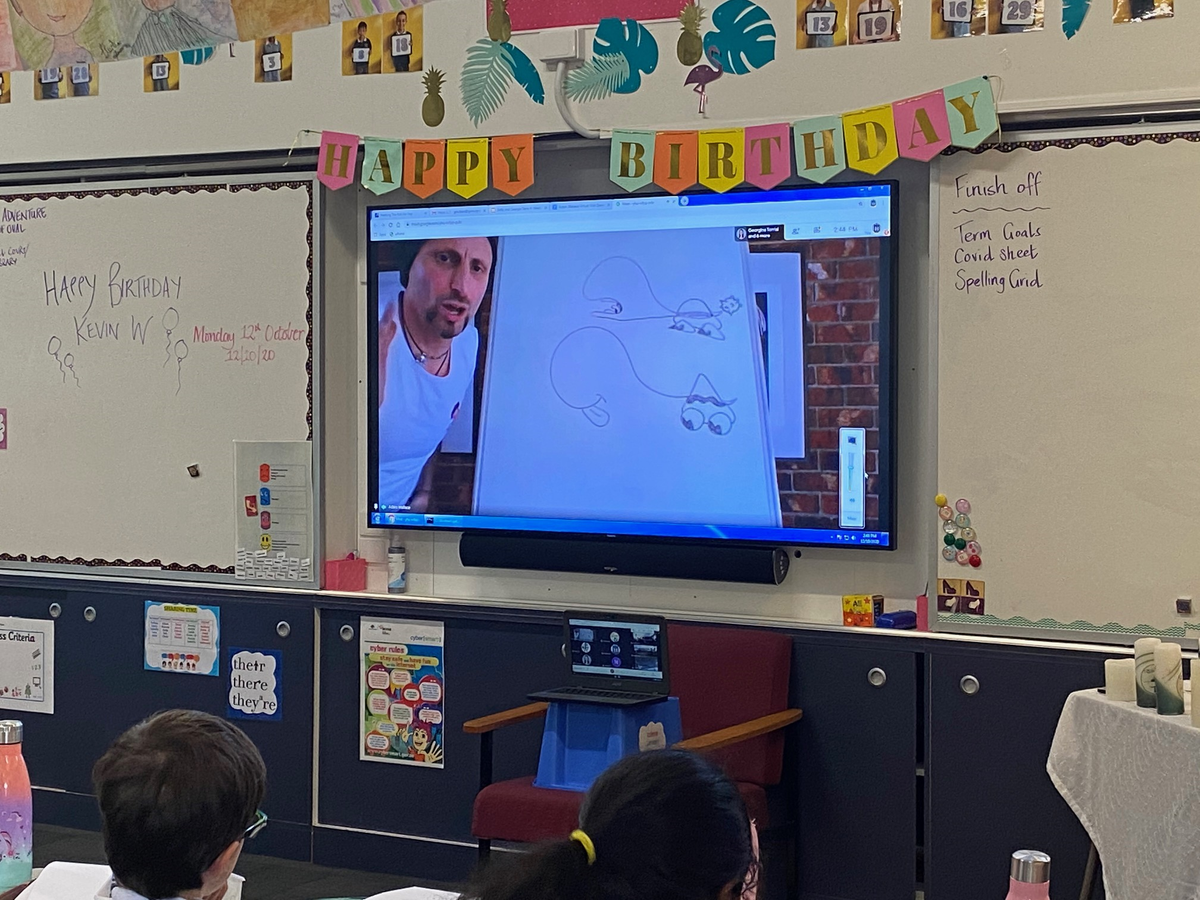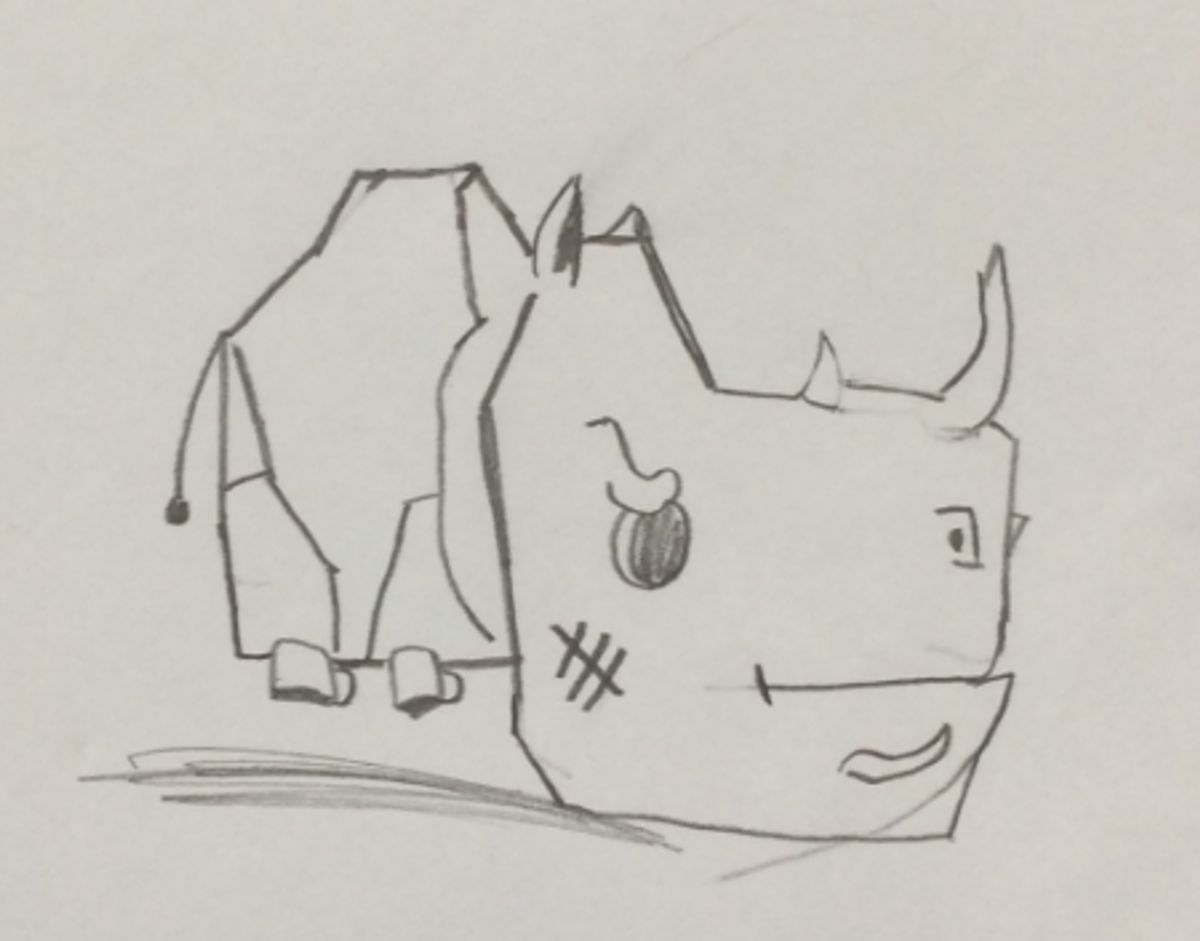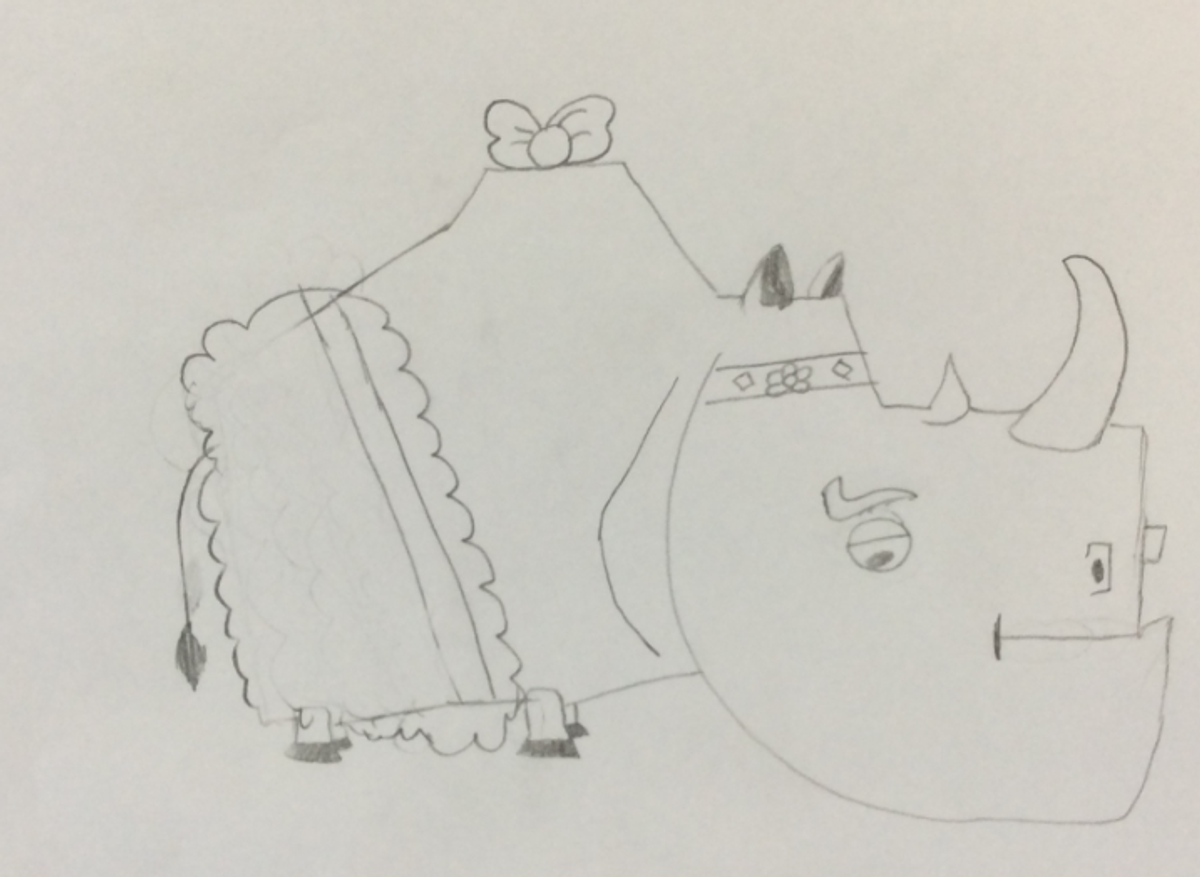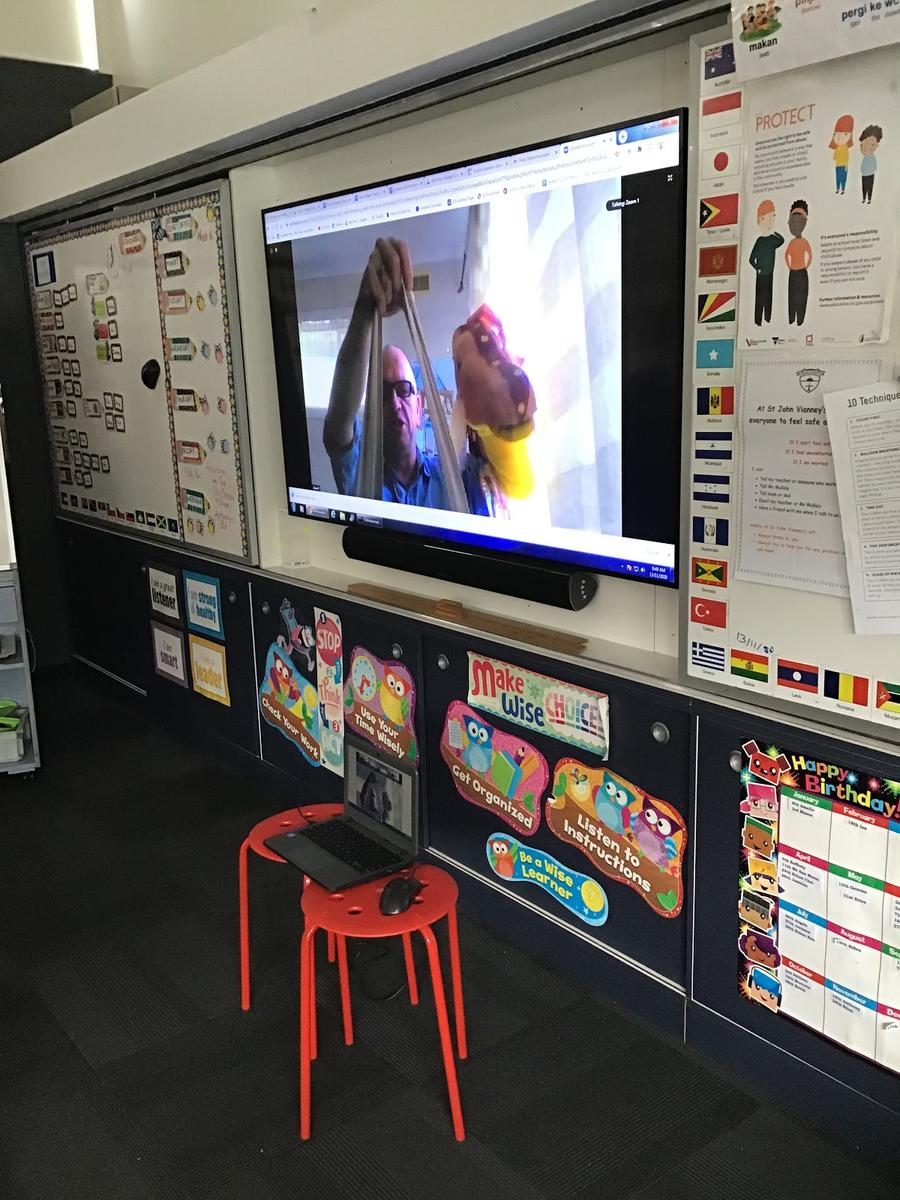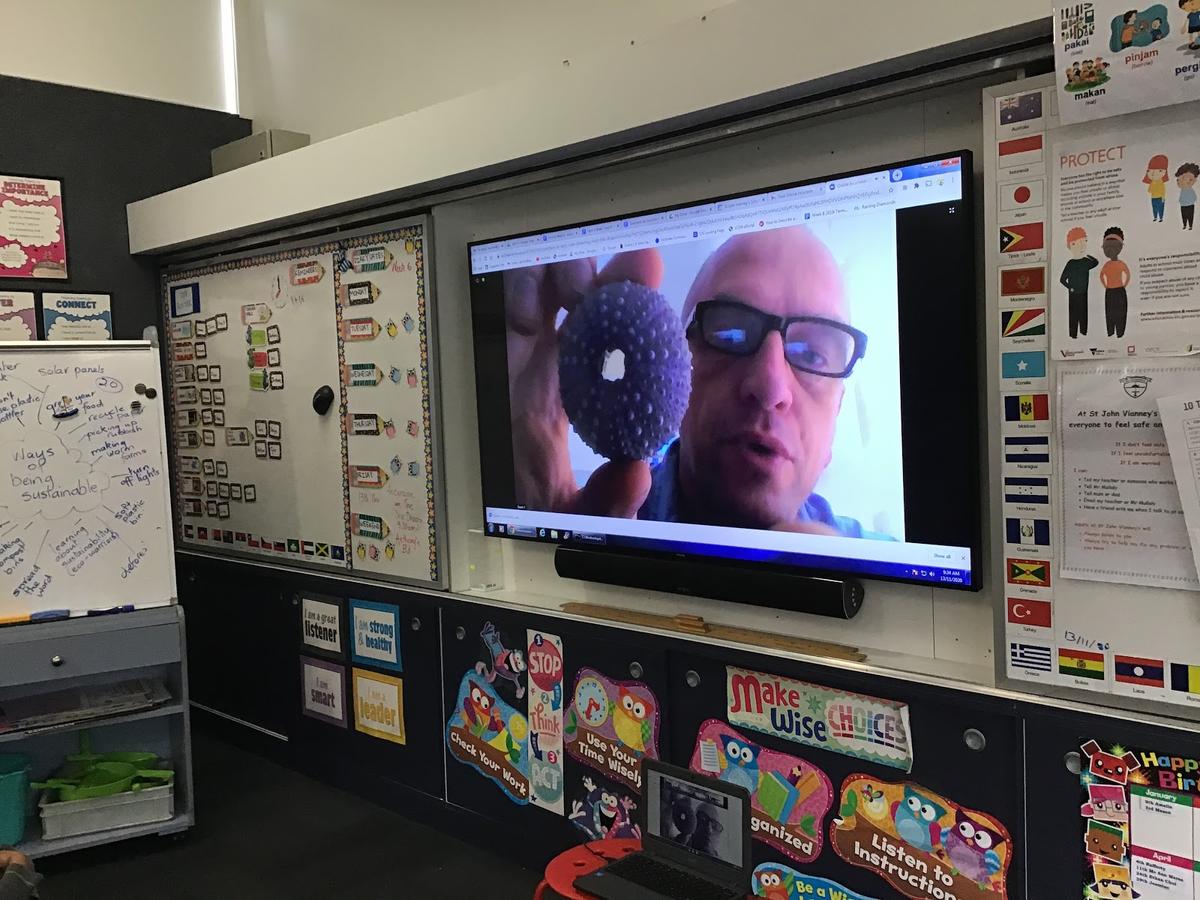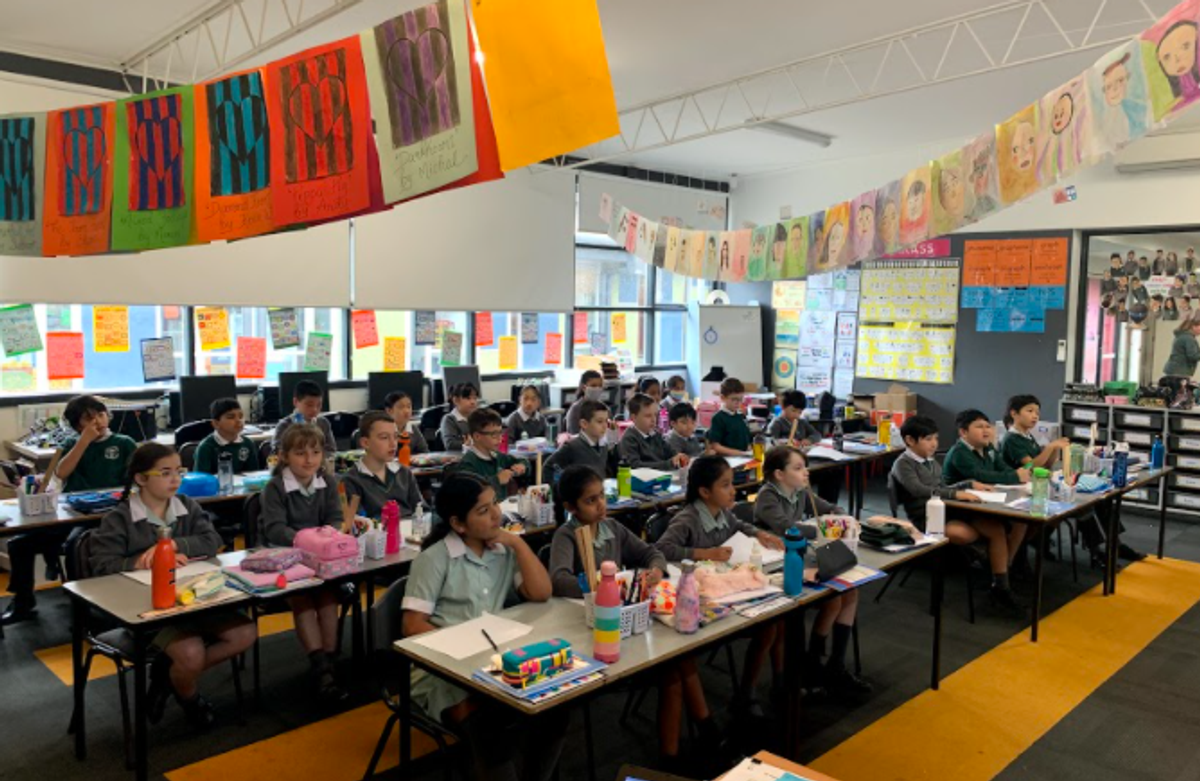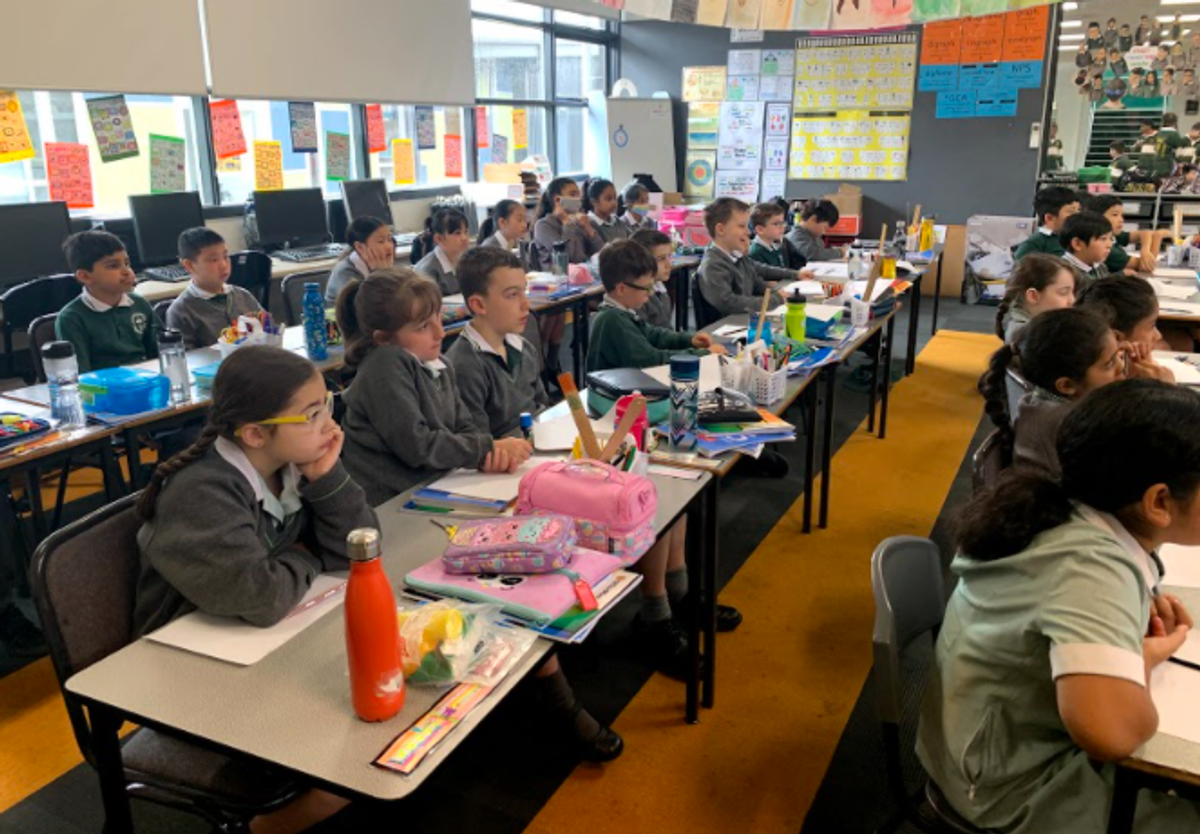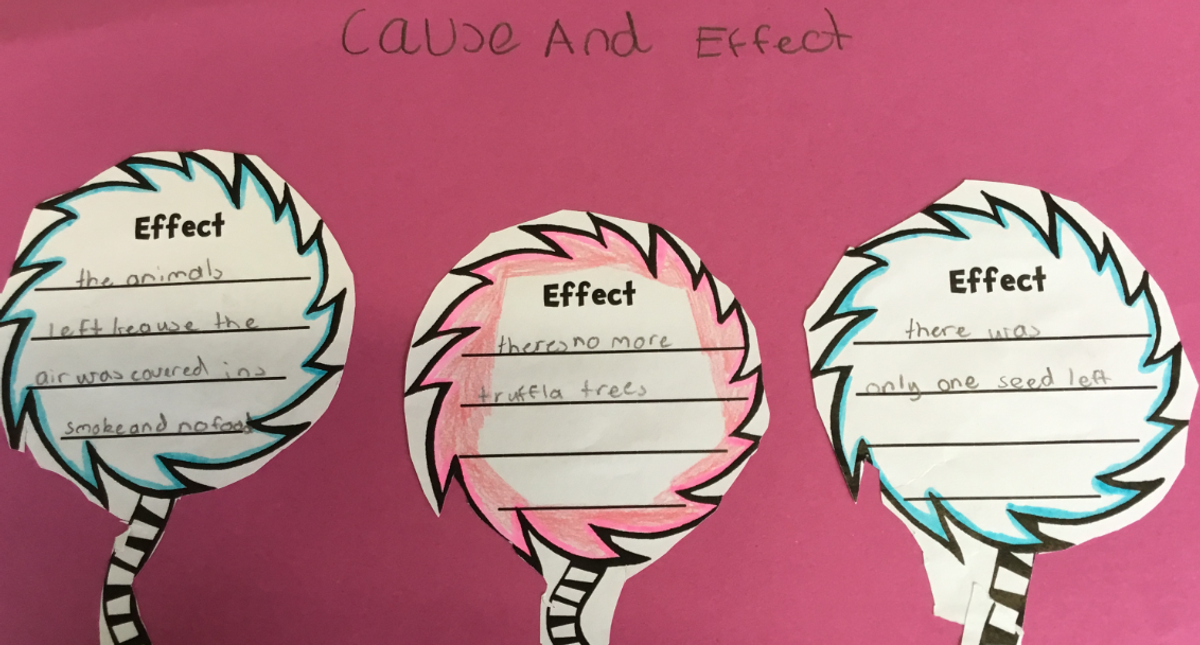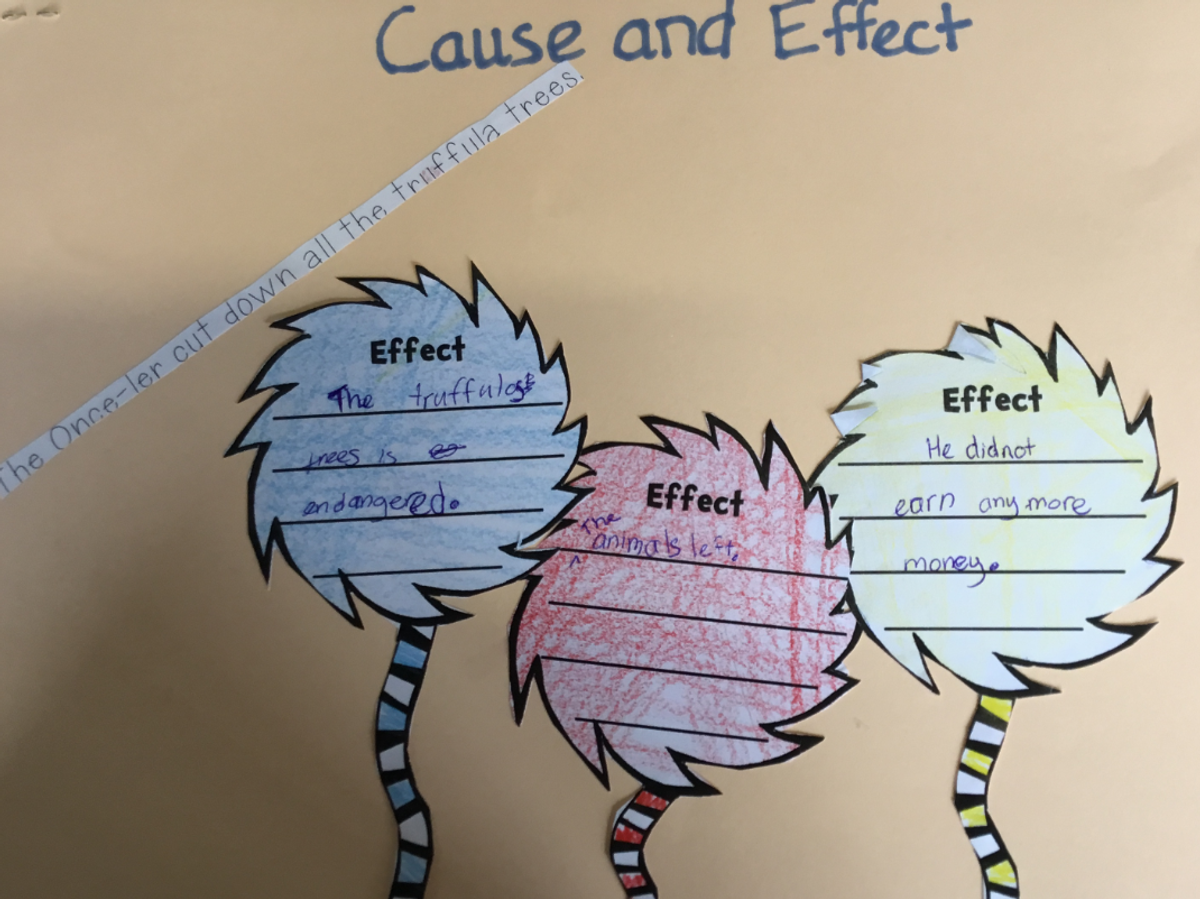Year 3/4
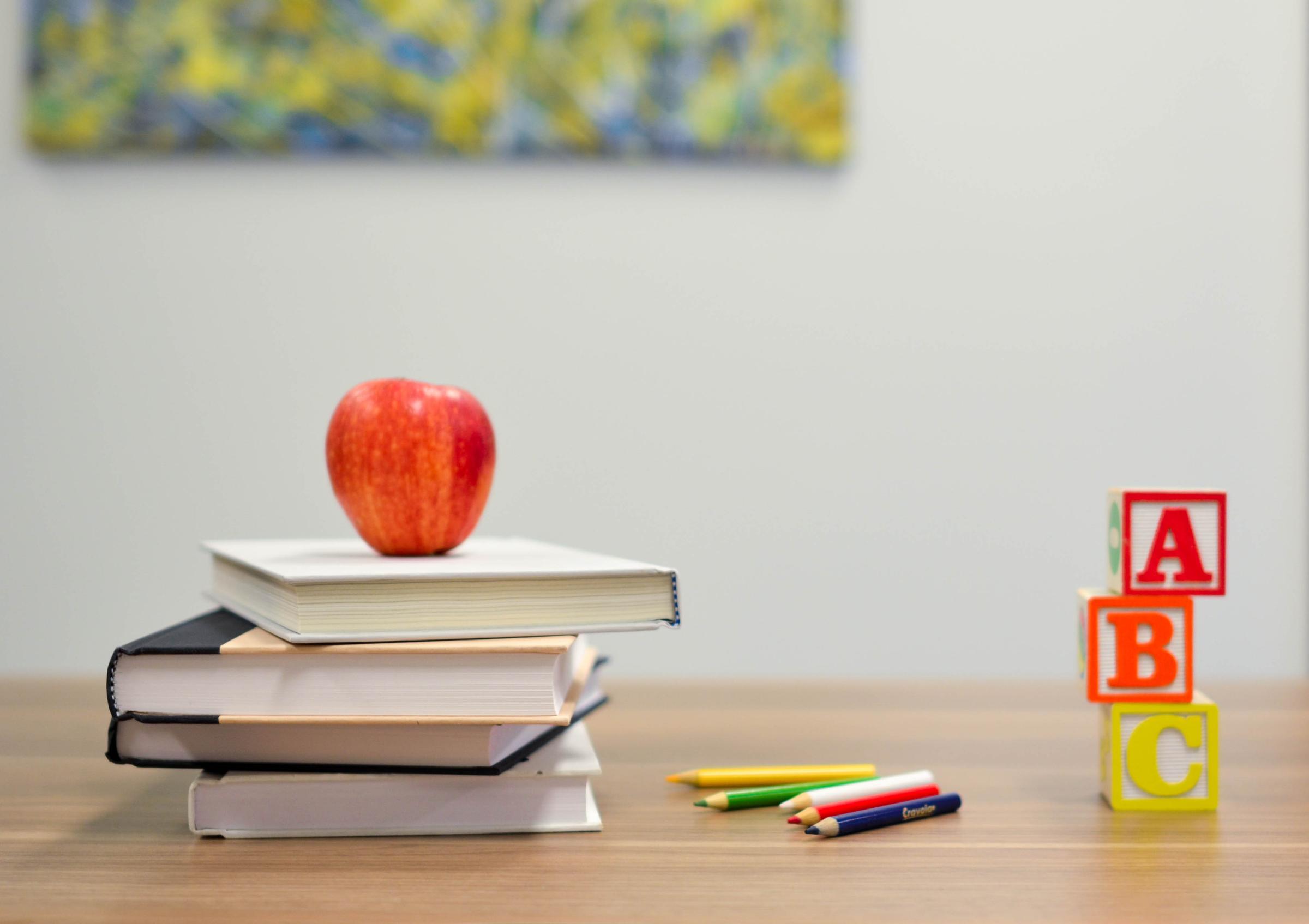
Adam Wallace Virtual Incursion
During Book Week celebrations, the 3/4 students participated in Virtual Author Visit with Adam Wallace. Adam taught the students how to build up excitement in stories, tips and tricks for illustrating characters, how you can show emotions and most importantly he encouraged students to use their creativity and have fun when creating stories and illustrations!
Here is what some of the students thought of the virtual incursion:
- “It was interesting in how he could draw a lion and violin in 10 seconds!”- Rooney
“It is funny how he creates his characters with big heads and little bodies” -An - “It was cool when he showed us how to draw a person” -Lucia
- “He was really good at explaining how to draw”- Anastasia
- “I liked how he challenged us to draw with our eyes closed or with our opposite hand”- Lula
- “I liked how Adam taught us how to draw people”- Jordan
Students really enjoyed following the instructions in his books to create some awesome looking creatures.
3/4HP learnt how to draw a ‘Truck Drivin Dragon Tail Rhino’ by following Adam’s instructions in his book!
SAM THE SEA DRAGON VIRTUAL INCURSION
On Friday the 13th November. All 3/4 classrooms participated in a virtual incursion called ‘Sam the Sea Dragon’. Our Eco Warrior inquiry this term has a strong emphasis with connecting with groups that are taking action to support the sustainability of our local area.
The session was led by Matt from Port Phillip Eco Centre and explored our local bayside beaches. He spoke to the students about how marine habitats and wildlife are being threatened by plastics that find their way into our oceans. Matt encouraged our students to take action by sharing this message to others to save our environment.
Here is are some responses about their thinking and learning -
Megan: I’m feeling frustrated as fish are dying.
Elina: Sea dragons look like seaweed
Amelia: It’s great that people are picking up more rubbish
Ethan C: It’s not good that people are polluting the seas.
Gemma: I learnt that boats drip oil into in the oceans
Charlie: Whales aren’t hunted as much
Erica :It takes 3 elephants tusks to make 12 ivory balls
Anthony:I want to know about marine life
Rafferty: I’m being an eco warrior
Matteo:We need to spread the Word
Jackson:I can put rubbish in the bin
Kevin:I can use less plastic
Tyler:I'm happy that people are making changes
Aiden: Reuse plastic to save the sea
Lincy:I will share my knowledge with others
Jasmine:Is there another way to help free marine life?
Mornora: I can follow rules to save the environment
Ethan H:There are lots of animals dying
Deeya: I want to know more about eco warriors
Paris: I can share solutions with others
Jaden: If you pick up rubbish it makes a difference
Ian: People shouldn't litter
Addison:Some people just don’t care
Nathan:It makes me feel afraid as people aren’t listening to our cries to help all sea animals
Angela: I can use the take 3 idea when I go to places
EDENDALE FARM INCURSION
On Friday November 6th, the 3/4 students participated in a virtual incursion run by Edendale Farm. Edendale Farm has made a commitment to make it an accessible community site that enhances environmental education. The speakers were Carolyn Pickburn and Richard Rowe.
Please enjoy reading some of our learnings and understandings:
Zahra & Hazel
56% of the glass we use in Australia gets recycled. You can recycle phones and batteries. We learnt about the 5 Rs: Rethink, Reduce, Recycle, Reuse, Refuse. 85% of soft plastic ends up in landfill.
Ileesha & Keziah
Plastic is a human creation that causes destruction to the world and ecosystem, however there is one solution...SUSTAINABILITY! Edendale Farm is a farm that uses items that can be recycled. They encourage people to be eco-friendly. It takes 400 years for plastic to break up. Composts help your plants grow better. Worm farms are really good to use. The most popular worms in Melbourne are Tiger worms and Red Wrigglers. Worms are mother nature’s natural recyclers.
Emily & Kevin. W
10 baby worms can grow in one egg. Worms produce castings which are really great to use as a fertilizer. It is important to understand what to put in each bin because it can save us millions of dollars by understanding how our bins work.
Ethan & Isabelle
Bamboo toothbrushes are more environmentally friendly than plastic toothbrushes because the bamboo ones are recyclable. Plastic can be recycled 7-9 times so it’s important to not just throw them out.
Marcus, Karissa and Jayden
Plastic bottles in landfill can fill the MCG 6 times over. 85% of recycled cardboard and paper is recycled. Did you know that w
rms have no eyes, ears and a nose? They only have a mouth. Worms also have 5 hearts. Some people think that you can’t put pizza boxes in the recycling bin but you can if you get rid of all waste that’s in the box.
John & Chris
Worms are easy to find so it’s easy to make a worm farm. Worms can eat egg shells, cardboard and dry leaves. Worms can’t eat meat and they don’t like sunlight. One of 5 Rs is ‘Re-think’. Just because you’ve always done things one way it doesn’t mean it’s the best way. Another one of the 5 Rs is ‘Refuse’. Say NO to plastic straws and plastic bags.
Kevin H & Anthony
Half of the items we throw away end up in landfill. Recycling is great because you can do it over and over again. Every 10 minutes, 6000 kilograms of clothing gets thrown away. Edendale Farm tries to save animals from harm.
Isabella & Andy
Chickens are good to own because they eat food scraps. All types of worms can have babies if they have a sack. Some earthworms have 5 hearts. Worms like to be in the dark and enjoy being in moisture.
Jadah & Naomi
Plastic takes 400 years to break down. Tiger worms can eat up to their own amount in weight. Worms lay 1 egg a day and they can have 4-5 worms in them. A worm farm is a little different to a normal compost bin because it doesn’t touch the ground.
Liam and Luca
Worms have no bones but lots of muscles. You can use old clothing to put over a worm farm for shelter. Over time, the worms will eat the clothes. Worms don’t like the sun so you need to protect them from light. Try and reuse items at home. Could an item be used for something else?
Isla & Sukhnoor
More than half of household items are organic. Glass, metal, liquids, plastic and fabric are recyclable. Boxes can be recycled 4-5 times. Organic waste comes from nature and goes back to nature!
Edison & Aaron
The smaller the vegetables in the worm farm, the quicker they will be eaten. Worms have no gender. Worms have no legs and arms. They move by using their muscles. If you find rubbish, pick it up and put it in the bin!
Andyle & Michal
Baby worms are see-through. Did you know that worms in worm farms aren’t your typical garden worm? Speaking of worms, they eat food scraps, digest it and turn it into faeces. The faeces is then turned into compost. Edendale Farm is a huge sustainable farm that helps out our country. They protect their animals with great care. When restrictions ease, you should go and visit!
The Lorax
This term we have been learning about Sustainabiity. We have been discussing and learning about how we can create and maintain a healthy and sustainable planet. We have used the book’The Lorax’ by Dr. Seuss to help us understand the concept. ‘Teh Lorax’ teaches us that for all of our actions there are consequences - this is also called cause and effect.

